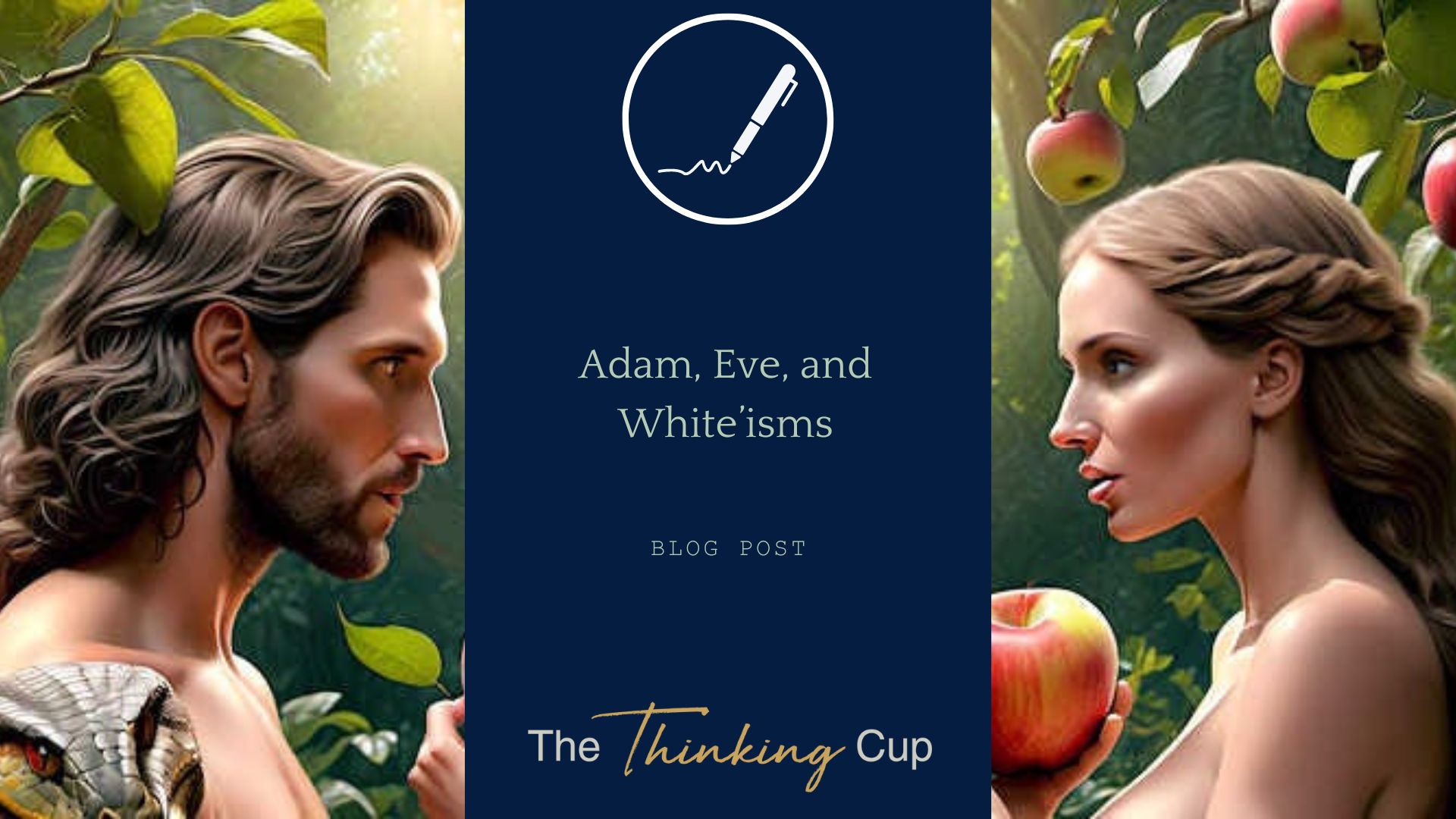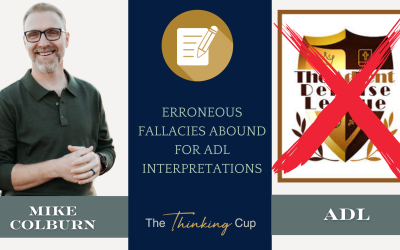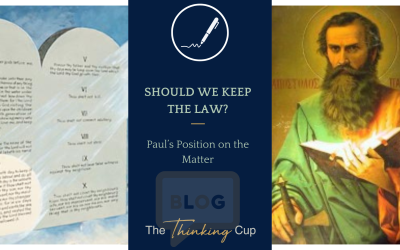
These questions probably don’t seem very important. After all, if someone opens the Bible and reads what the inspired scriptures say, the answers are pretty straightforward. I remember growing up as a kid and hearing the answers to the first questions differently. It went something like this…
Adam and Eve were together in the garden, and then Eve wandered off by herself. At this point, the talking serpent said his smooth words to her, and she was deceived. After she had eaten the fruit and her eyes were opened, she went running back to Adam with armfuls of fruit, telling Adam that it was okay to eat the fruit. Look, she hadn’t died! The rest is history.
I never really thought much about those bedtime stories that captured small snippets of the Bible narrative. I didn’t really have any reason to doubt that the story I was told wasn’t correct. I’m 42 years old now, and our girls are past the age of telling bedtime stories, but I want to make sure what our girls learn from scripture is accurate.
You can understand my surprise when I went back to scripture and read what was in the text,
“Now the serpent was more crafty than any other beast of the field that the Lord God had made. He said to the woman, “Did God actually say, ‘You shall not eat of any tree in the garden’?” And the woman said to the serpent, “We may eat of the fruit of the trees in the garden, but God said, ‘You shall not eat of the fruit of the tree that is in the midst of the garden, neither shall you touch it, lest you die.’ ” But the serpent said to the woman, “You will not surely die. For God knows that when you eat of it your eyes will be opened, and you will be like God, knowing good and evil.” So when the woman saw that the tree was good for food, and that it was a delight to the eyes, and that the tree was to be desired to make one wise, she took of its fruit and ate, and she also gave some to her husband who was with her, and he ate. Then the eyes of both were opened, and they knew that they were naked. And they sewed fig leaves together and made themselves loincloths. And they heard the sound of the Lord God walking in the garden in the cool of the day, and the man and his wife hid themselves from the presence of the Lord God among the trees of the garden.” (Gen 3:1–8)
I’m not a Hebrew scholar, but I felt a little betrayed when I read verse 6.
“…She took of its fruit and ate, and she also gave some to her husband who was with her, and he ate.” (Gen. 3:6a)
Why didn’t the text say what I thought had happened?
These moments are fondly referred to now as “white’isms.” One has been taught this about the Biblical text that isn’t in the text because they aren’t derived from it. They seem to be biblically accurate interpretations, but when you go to the text to find them, they’re nowhere to be found. Instead, it derives from the interpretation of Ellen White. Let me explain further.
As Ellen begins to reinterpret and retell the facts of the narrative, they begin to form the Great Controversy Theme of her entire literary framework. Jesus and Satan are at odds, and humanity must comply with complete obedience to vindicate God’s character. In the Spirit of Prophecy, the beginning stage of shifting the narrative is set when she writes,
“The angels cautioned Eve not to separate from her husband in her employment; for she might be brought in contact with this fallen foe. If separated from each other, they would be in greater danger than if both were together.” [1]
She goes on to set the stage further. Satan could only tempt them at the Tree of Knowledge of Good and Evil. Adam and Eve promised the angels that they would be obedient and never transgress God’s commands. She then adds,
“Eve, unconsciously at first, separated from her husband in her employment. When she became aware of the fact, she felt that there might be danger; but again she thought herself secure, even if she did not remain close by the side of her husband.[2]
Now, it’s clear to me that the story that Ellen White is crafting adds A LOT of details that no Biblical text could possibly back up. We are now in the realm of ‘extra’ biblical content.
“Eve’s curiosity was aroused. Instead of fleeing from the spot, she listened to hear a serpent talk. It did not occur to her mind that it might be that fallen foe, using the serpent as a medium. It was Satan that spoke, not the serpent. Eve was beguiled, flattered, infatuated. Had she met a commanding personage, possessing a form like the angels, and resembling them, she would have been upon her guard. But that strange voice should have driven her to her husband’s side to inquire of him why another should thus freely address her.” [3]
Ellen adds all kinds of detail to the narrative, which continues to help build the tension in her retelling of the narrative. Will Eve listen to God? Or will Satan prove that God’s character is flawed? To my surprise, the details that I remember from my childhood were NOT in the Biblical text but rather from the narrative told by Ellen White,
“She then plucked for herself of the fruit and ate, and imagined she felt the quickening power of a new and elevated existence as the result of the exhilarating influence of the forbidden fruit. She was in a strange and unnatural excitement as she sought her husband, with her hands filled with the forbidden fruit. She related to him the wise discourse of the serpent, and wished to conduct him at once to the tree of knowledge. She told him she had eaten of the fruit, and instead of her feeling any sense of death, she realized a pleasing, exhilarating influence. As soon as Eve had disobeyed, she became a powerful medium through which to occasion the fall of her husband.”[4]
So what’s the big deal? Maybe the story did happen like this, right? Or perhaps it didn’t, right? If we let scripture interpret itself, the answer would be pretty straightforward. The Biblical text is clear,
“So when the woman saw that the tree was good for food, and that it was a delight to the eyes, and that the tree was to be desired to make one wise, she took of its fruit and ate, and she also gave some to her husband who was with her, and he ate. 7 Then the eyes of both were opened, and they knew that they were naked. And they sewed fig leaves together and made themselves loincloths. (Ge 3:6–7)
The Biblical text portrays the exact opposite of what Ellen claims. They were never apart. They were always together. There is no contrived fable of the two being separated and the woman being weak without the husband. And just so we are clear, Ellen truly believed that Eve wandered off; she wrote about it all over the place.
“Adam censured Eve’s folly in leaving his side and being deceived by the serpent.” [5]
“Adam reproached his companion for her folly in leaving his side and permitting herself to be deceived by the serpent; but they both flattered themselves that He who had given them so many evidences of His love, would pardon this one transgression, or that they would not be subjected to so dire a punishment as they had feared.” [6]
“Adam regretted that Eve had left his side, but now the deed was done. He must be separated from her whose society he had loved so well. How could he have it thus? His love for Eve was strong. And in utter discouragement he resolved to share her fate.” [7]
“The one deceived by Satan imparts to a fellow being the new light that he supposes he has received, as Eve placed the forbidden fruit in the hand of Adam. Unenlightened heathen are in no worse condition spiritually than is the man who has known the truth but has accepted error.…” [8]
This became a theme that Ellen carried throughout her writings. But why would she take a theme so clearly different from what the plain “thus sayeth the Word of God?”
There are only a couple of ways of responding to this kind of discrepancy between Ellen White’s interpretation of Scripture and the Biblical text itself:
-
- Re-interpret Ellen White’s narrative in a way that aligns with Scripture. (I’m not smart enough to figure out how to do this….)
- Re-interpret the Biblical text to align with Ellen White’s narrative. (This scares me to death. Seems heretical and potentially dangerous concerning theology.)
- Choose to see Ellen White’s writing for what they are, at odds with the Bible.
This third option seems to be the safest solution to the problem. Although I don’t often agree with Ellen White’s writing, the following quote seems suitable for this discussion.
“God does nothing in partnership with Satan. My work for the past thirty years bears the stamp of God or the stamp of the enemy. There is no halfway work in the matter. The Testimonies are of the Spirit of God, or of the devil. In arraying yourself against the servants of God you are doing a work either for God or for the devil.” [9]
Bonus Answer: Did Satan deceive Adam in the Garden of Eden?
Scripture is clear on this topic:
“For Adam was formed first, then Eve; and Adam was not deceived, but the woman was deceived and became a transgressor. Yet she will be saved through childbearing—if they continue in faith and love and holiness, with self-control.” (1 Ti 2:13–15)
But then again, why would I even ask the question? The Bible is clear.
Being raised in a denomination that re-interprets the Biblical narrative through the lens of Ellen White, I’ve begun to question everything I thought was Biblical. Why? Again, Ellen White’s narrative makes subtle changes to the text that fit her personal supposed divine understanding of scripture. Ellen writes,
“From the moment that Christ entered the world, the whole confederacy of Satanic agencies was set at work to deceive and overthrow Him as Adam had been deceived and overthrown.…” [10]
“Satan, who is the father of lies, deceived Adam in a similar way, telling him that he need not obey God, that he would not die if he transgressed the law. But Adam fell, and by his sin he opened the floodgates of woe upon our world. Again, Satan told Cain that he need not follow expressly the command of God in presenting the slain lamb as an offering.” [11]
But it’s hard to know what Ellen White really thought because she contradicts her own perspective and interpretations:
“Adam was not deceived by the serpent, as was Eve, and it was inexcusable in Adam to rashly transgress God’s positive command. Adam was presumptuous because his wife had sinned. He could not see what would become of Eve. He was sad, troubled, and tempted. He listened to Eve’s recital of the words of the serpent, and his constancy and integrity began to waver. Doubts arose in his mind in regard to whether God did mean just as he said. He rashly ate the tempting fruit.” [12]
If you’re still reading this article, my request is simple: Please, please, please… STOP reading Ellen G. White’s interpretation of the Bible. Your understanding of scripture will be skewed ever so slightly.
“Do your best to present yourself to God as one approved, a worker who has no need to be ashamed, rightly handling the word of truth.” (2 Ti 2:15)
[1] The Spirit of Prophecy, vol. 1 (Seventh-day Adventist Publishing Association, 1870), 34.
[2] The Spirit of Prophecy, vol. 1 (Seventh-day Adventist Publishing Association, 1870), 35.
[3] The Spirit of Prophecy, vol. 1 (Seventh-day Adventist Publishing Association, 1870), 36.
[4] The Spirit of Prophecy, vol. 1 (Seventh-day Adventist Publishing Association, 1870), 38–39.
[5] Ellen Gould White, The Story of Redemption (Review and Herald Publishing Association, 1947), 38.
[6] Ellen Gould White, The Story of Patriarchs and Prophets as Illustrated in the Lives of Holy Men of Old, vol. 1, Conflict of the Ages Series (Pacific Press Publishing Association, 1890), 57.
[7] Ellen Gould White, The Story of Redemption (Review and Herald Publishing Association, 1947), 36.
[8] Ellen Gould White, Medical Ministry (Pacific Press Publishing Association, 1932), 93.
[9] Testimonies for the Church, vol. 4 (Pacific Press Publishing Association, 1855), 230.
[10] Ellen Gould White, God’s Amazing Grace (Review and Herald Publishing Association, 1973), 162.
[11] The Review and Herald, n.d., 2837.
[12] The Review and Herald, n.d., 323.




I had never really thought about how Patriarchs and Prophets described the sequence of events in the garden. I remember now as an adult the first time I did an in depth study going verse by verse and looking up the Hebrew words the stunned realization that EGW contradicted the Bible. She portrays Eve as a bumbling idiot compared to Adam.
There are many more such instances in the Bible as well that EGW flatly contradicts prior revelation.
I’ll be sharing many other contradictions in the coming weeks. It’s a rabbit hole that once a person goes down… you can’t come back from.
You must like the rabbit hole. The bigger picture is well conceived. You’ve thought so much out of the box that you’ve lost your solid perspective and vanity has prevailed! May God lead you to a path of understanding and obedience
Susie,
I’m glad you happened to land on this website. I would encourage you to read through the articles on Ellen G. White for a better understanding of who she really was: https://thethinkingcup.com/category/articles/ellen-g-white/
Regarding the ‘rabbit hole,’ I would encourage you to test everything the church teaches, especially what EGW says. This is precisely what I did in the article. The Bible is CLEAR… ONLY YHWH went through the cut animals as a covenantal agreement. This is important in ANE (Ancient Near Eastern) thought and how covenants were ratified. This signified that only God was bound to the promise and would do the action. Ellen White changes this by revising the story and claiming that Abraham also walked through the cut animals. Thus claiming that Abraham has a part to play in the agreement. This is false and completely unbiblical. This is just another example of how Ellen White is a FALSE TEACHER!
I pray you will continue to study the word of God and find Truth!